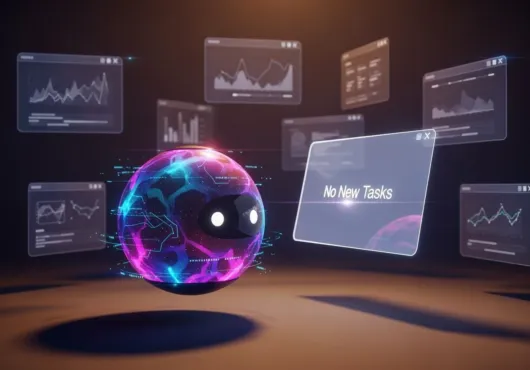What was once a slow, methodical industry has transformed into a race at breakneck speed, all thanks to AI. From trading algorithms making decisions faster than we can blink, to robo-advisors managing our finances, the tech revolution is here. But here’s the question: who’s really benefiting from this shift? Is it the big players, or are we all just getting swept along for the ride?
Like What You Read? Dive Deeper Into AI’s Real Impact.
Keep Reading- AI is taking over finance, from trading to robo-advisors.
- Big players benefit, but it’s leaving everyday investors behind.
- The real question: Will we control finance, or will the algorithms take over?
The Rise of Algorithmic Trading
Let’s start with trading. High-frequency trading (HFT) powered by AI has already outpaced humans, executing thousands of trades per second with pinpoint accuracy. But that’s not the whole story. What’s happening is that these AI systems are creating markets where the little guy doesn’t stand a chance. In the race to be faster, smarter, and more efficient, the algorithmic trades happening at lightning speed are leaving human investors eating their dust.
The real winners? The firms that can afford the most advanced AI systems. The losers? Anyone outside the elite club, including regular investors who can’t compete with the speed and precision of AI. This has created a new financial ecosystem where access to AI is becoming as important as access to capital.
AI and Risk Management: Precision or Pitfalls?
Risk management is another area where AI is making waves. While the traditional methods of assessing financial risk were based on historical data and human intuition, AI takes it to a whole new level by processing vast amounts of data in real-time and predicting risk factors with far more precision.
Sounds like the perfect solution, right? But when the algorithm misses a crucial detail the whole system can fall apart. Sure, when it works, it does wonders—automating everything from liquidity forecasting to financial decision-making. But the catch is: what happens when it overlooks something that a human might have caught?
Robo-Advisors: Is This the Future?
Who needs a human financial planner when robots can do it for you—faster, cheaper, and without the fees? Robo-advisors are using data from your spending, goals, and market trends to create personalized investment plans that adapt to your needs. The best part? They don’t take a cut of your savings.
The result? More people are investing and saving, but at what cost? Robo-advisors might be the future, but they also remove a lot of the personal touch and human intuition that comes with managing money. Plus, these algorithms don’t really understand the emotional side of finance—when markets crash, can they handle the human panic?
Are we sacrificing the emotional intelligence that comes with human financial advice in favor of efficiency?
The Impact: Control vs. Convenience
The shift we’re seeing isn’t just about AI making financial decisions quicker or more accurate. It’s about AI reshaping the financial ecosystem into a space where only the biggest players truly thrive. Algorithms aren’t just forecasting the market—they’re running it.
The real question is: as AI takes a stronger hold on finance, will we still have a say in how the game’s played, or will the algorithms become the ones calling the shots? If you don’t have the capital or the tech to keep up, will you get left behind, or will the system eventually be structured in a way that allows the rest of us to play, too?



